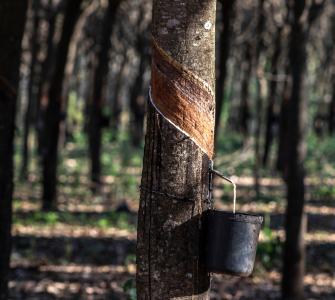The Amazonian native rubber supply chain holds significant socio-environmental value, yet its contributions to ecosystem services often go undercompensated. Through a partnership between CSF and WWF-Brazil, this project seeks to address this gap by creating a Payment for Ecosystem Services (PES) methodology to reward the traditional extractive practices of rubber tappers.
Rubber tapping in the Amazon not only sustains livelihoods but also contributes to carbon sequestration, biodiversity conservation, and the maintenance of water cycles. By valuing these services, the project aims to integrate PES into the pricing structure of native rubber, ensuring fair and equitable remuneration for the communities safeguarding these vital ecosystems.
This initiative involves:
- Identifying the socio-environmental values offered by the Amazonian native rubber supply chain, including direct and indirect ecosystem services.
- Estimating the economic benefits derived from these services and quantifying their physical and ecological flows.
- Developing a transparent pricing model that incorporates PES, guaranteeing equitable compensation for the ecosystem services provided by rubber-tapping communities.
By establishing a reliable framework for PES in the native rubber supply chain, this project contributes to strengthening the "standing forest economy," reducing deforestation pressures, and promoting sustainable development in the Amazon. The outcome will empower traditional communities with financial recognition for their environmental stewardship while fostering resilience in their livelihoods.
This project is made possible with the generous support of WWF Brazil.
___
Photo Credit: Natural Rubber, Brazil, Shutterstock

